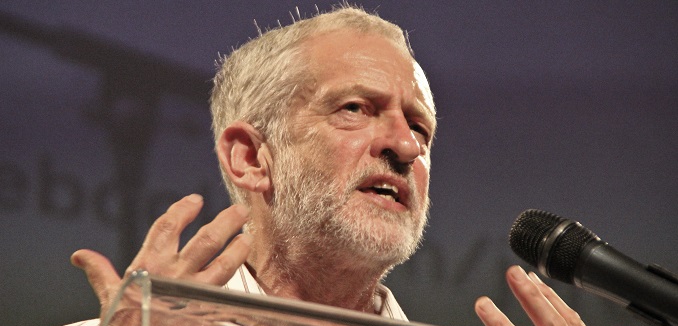The UK Labour Party’s failure at effectively combating anti-Semitism within its ranks “has created what some have referred to as a ‘safe space’ for those with vile attitudes towards Jewish people, exacerbated by the Party’s demonstrable incompetence at dealing with members accused of antisemitism,” a prominent parliamentary committee stated in a report released Sunday.
“The failure of the Labour Party to deal consistently and effectively with anti-Semitic incidents in recent years risks lending force to allegations that elements of the Labour movement are institutionally anti-Semitic,” the 70-page report from the multi-party Home Affairs Committee also said. “The result is that the Labour Party, with its proud history of fighting racism and promoting equal rights, is seen by some as an unwelcoming place for Jewish members and activists.”
Party leader Jeremy Corbyn was singled out for criticism, with the committee stating that they were “not persuaded that Mr Corbyn fully appreciates the distinct nature of contemporary antisemitism, and the fact that it is perfectly possible for an ‘anti-racist campaigner’ to express antisemitic views.”
The committee, which includes three Labour members, also took issue with the party’s internal inquiry into anti-Semitism earlier this year. That investigation, chaired by civil rights campaigner Shami Chakrabarti, was “compromised by its failure to deliver a comprehensive set of recommendations, to provide a definition of antisemitism, or to suggest effective ways of dealing with antisemitic incidents.” The decision a few months later by Corbyn, a long-time campaigner to abolish the House of Lords, to name Chakrabarti to that body, and later to appoint her as a member of his shadow cabinet, “has thrown into question the independence of the Labour Party’s inquiry.”
Corbyn was critical of the Home Affairs Committee report after it was released, saying that the report had overlooked anti-Semitism in other parties, heard evidence from “too narrow a pool of opinion,” and had “unfairly criticized” Chakrabarti.
Corbyn, who has called Israeli politicians “criminals,” referred to members of the terrorist organizations Hamas and Hezbollah as “friends,” and held a joint event with a known Holocaust denier, has been heavily criticized for his failure to adequately address anti-Semitism within his party. Indeed, at the event announcing the findings of the Chakrabarti report, Corbyn compared Israel to ISIS (which he later tried to walk back); stood by while an activist yelled at Jewish Labour member of parliament Ruth Smeeth, accusing her of being part of a media conspiracy against Corbyn; and then shook hands and chatted with the activist after Smeeth had left in tears. Since then, Smeeth estimated that she has received 25,000 instances of abuse, including from one person who wrote a 1,000-word essay on how he would kill her.
Anti-Semitic incidents increased by 11 percent across the UK and 62 percent in London in the first half of 2016, according to figures from the Community Security Trust, which monitors anti-Semitism in Britain.
For an in-depth analysis of the controversy, read How Did Anti-Semitism in Britain Get So Bad?, by senior editor Ben Cohen, which was published in the most recent issue of The Tower Magazine.




